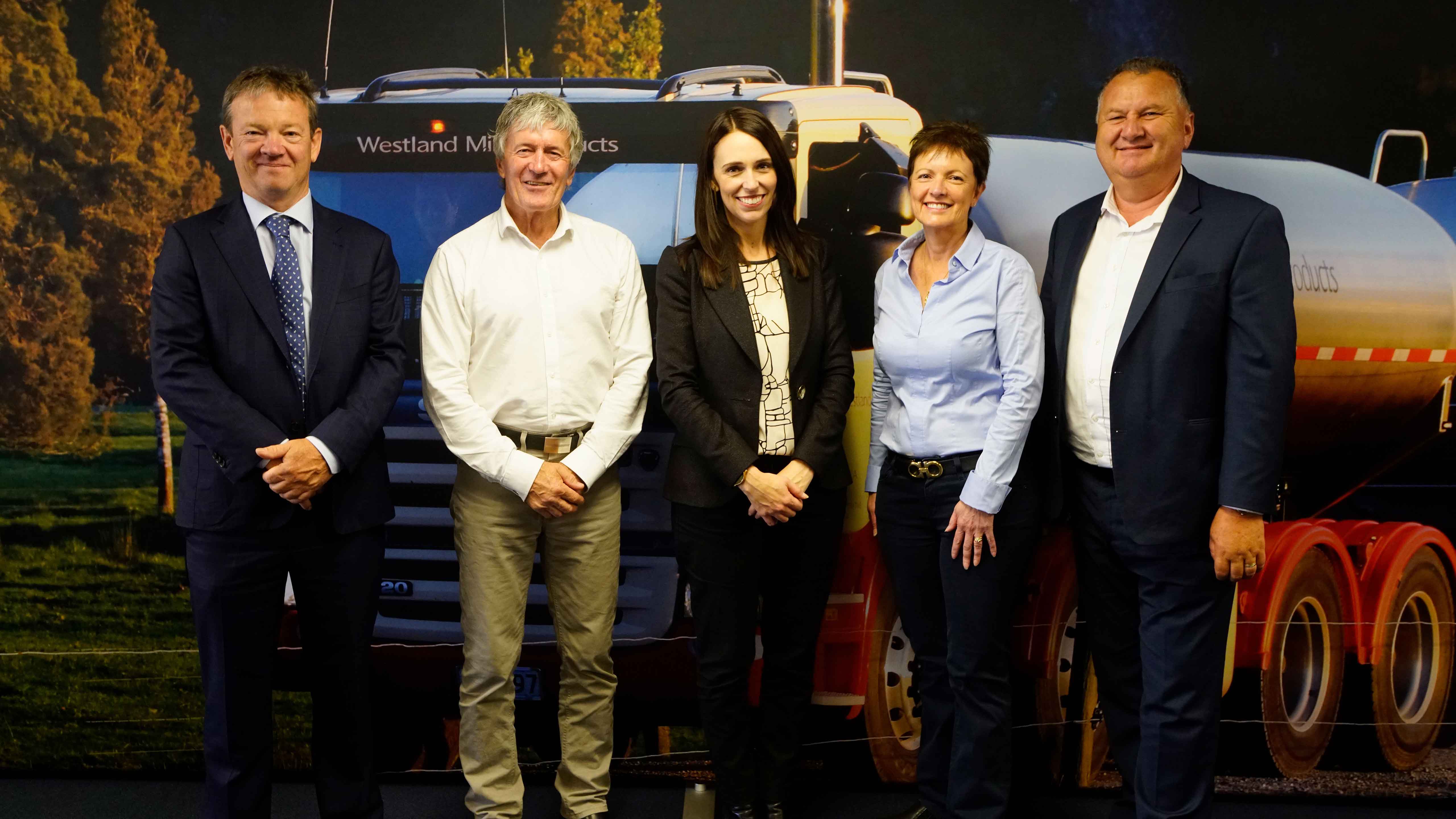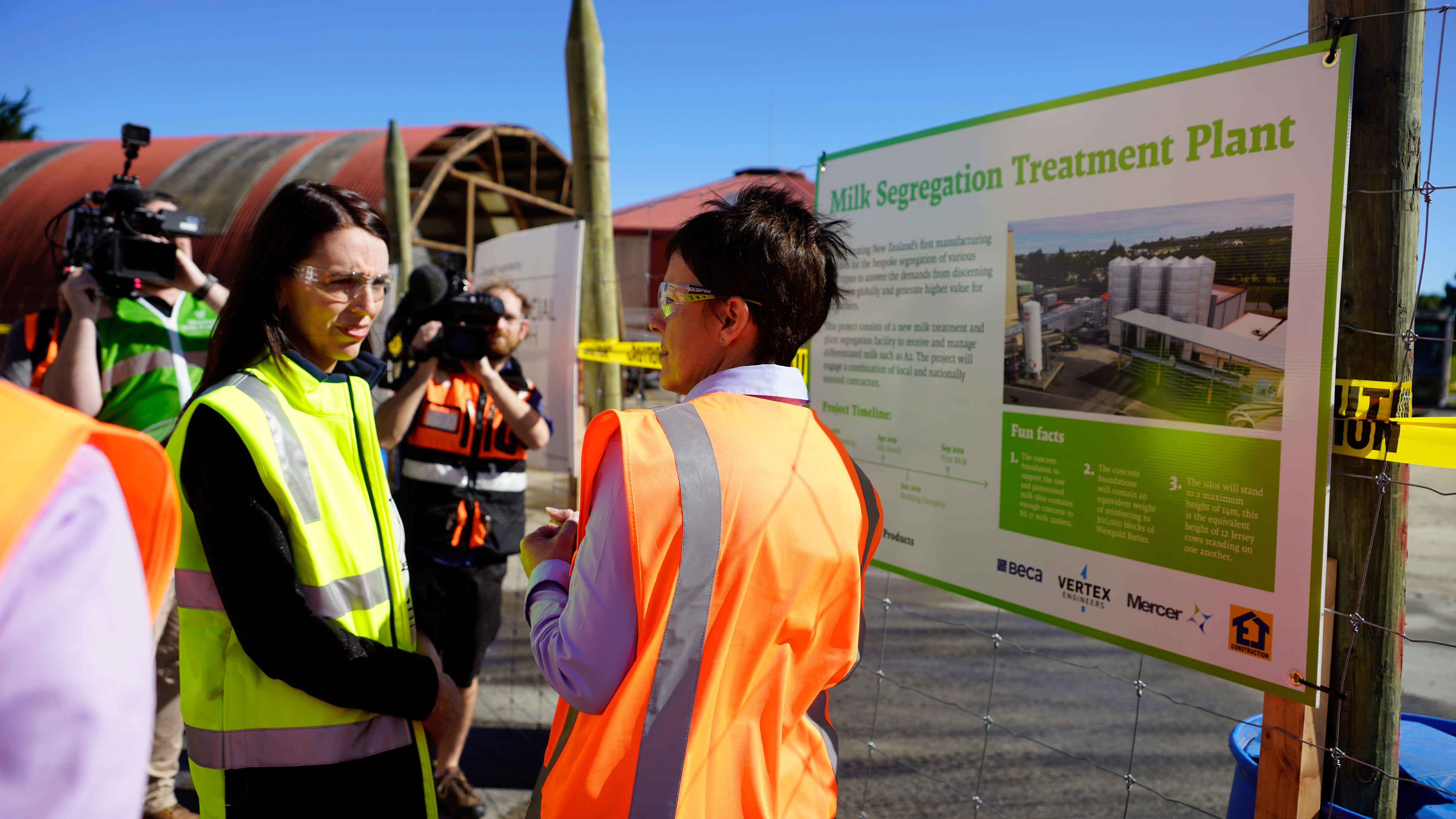Nov 28th 2018 /
Many benefits from segregation plant at Westland Milk Products
Westland Milk Products’ construction of facilities specifically designed for ‘made-to-order’ segregation of milk types will have wide-ranging benefits for the West Coast region.
The West Coast-based co-operative welcomes the investment, in the form of a $9.9million loan, from the Government’s Provincial Growth Fund to help build a $22million plant at Hokitika. The plant will allow Westland to separately process (segregate) multiple types of special quality milks into high value products to meet growing global and domestic demand; returning more money to shareholder farmers and the regional economy.
Chief Executive Toni Brendish says segregated production of speciality milks is a key component of Westland’s five-year strategy.
“Westland needs to reduce its dependency on bulk dairy commodities with their volatile pricing cycles,” says Brendish. “We’ll do this by expanding our capacity to produce high value products, differentiated by the special qualities of the milk used to make them. This will include A2 milk and our new Ten Star Premium Standard* milk. There is also potential, in later stages of the project, for other segregated products such as grass-fed, pure Jersey, goat or sheep milk, or even plant-based nutrition.”
Brendish says the Provincial Growth Fund investment allows the company to bring forward development of its segregation capacity; bringing the benefits back to the company, its shareholders and the regional economy far sooner.
The new plant will also allow the co-operative to produce high value segregated product even during the peak milk season.
“Currently, while we can produce some segregated product on the shoulders of the season, at peak our existing plant capacity forces us to process low value bulk commodities just to get the milk volume through.”
The plant will be operating in time for the 2019-20 season. It will create an additional eight to ten jobs at Hokitika, but the benefits to the West Coast economy will go far beyond that. A purpose-designed plant for processing multiple segregated products will be a first for the New Zealand dairy industry, and a real boost for the West Coast region.
“Westland Milk Products is already a key economic driver of the West Coast economy,” Brendish says. “Dairy generated more than 14.3% ($234.4 million) in gross domestic product in the region in 2016 alone and 9.2 percent of the region’s workforce are directly employed staff (shareholder farmers and their employees are additional).
“However, we do face challenges to our objective of delivering our shareholders a competitive and sustainable payout that ensures their future, and the future of dairying in our region.
“We simply can’t compete in the bulk dairy commodities arena where we have little influence or control over the vagaries of the global dairy trade, and a reduced ability to ride out its highs and lows. If Westland is to thrive, and grow our vital contribution to the West Coast economy, we must focus on our best assets, including our heritage, location, people and, particularly, our smaller size, with the agility and flexibility that comes with that.
“It makes sense for us to focus on low volume, segregated, high value products that are far less susceptible to the cycles of the global dairy trade market. There is growing demand from customers prepared to pay premium prices for bespoke products that meet their, and their consumers’, particular needs.
“More money going into dairying will lead to more spending across the whole region, with benefits far beyond dairying. Businesses aligned to agriculture do better, more staff can be employed on farms and in support businesses, more people are attracted to the West Coast to work, there’s more spending in the community, more children in schools and so on.”
Brendish says some specialised staff are likely to be attracted to the region by the requirements of the new plant, and Westland’s skills development programme means these skills will be passed on to existing staff and new people coming through, benefitting the West Coast generally.
“Most importantly, this is a great best chance to ensure that West Coast dairying remains a viable and sustainable contributor to the region for generations to come,” Brendish concluded.
November 29 2018 - Prime Ministerial visit to Westland Milk products as a recipient of investment from the Provincial Growth Fund:
Westland Milk Products hosts Prime Minister Jacinda Ardern, the Minster for Regional Economic Development Shane Jones and Local MP Damien O'Connor prior to the Provisional Growth Fund announcement.

Pictured (Left to right): Westland Milk Products Chairman Pete Morrison, Local MP Damien O'Connor, Prime Minister Jacinda Ardern, Westland Milk Products Cheif Executive Officer Toni Brendish, Minister for Regional Economic Development Shane Jones.

Westland Milk Products Chief Executive Officer Toni Brendish shows Prime Minister Jacinda Ardern the site for Westland's new segregation milk plant.
View further information, photos and videos in the links below.
ENDS
* Ten Star Premium Standard (10SPS) is milk produced on farms run to a set of very high measures including: animal welfare, human rights, environmental requirements; feed standards (such as a pasture-fed and not using the likes of palm kernel extract); quality, safety and traceability.
Media inquiries to:
Steve Attwood
Communications Manager
E: [email protected]
P: 03 943 0580
C: 027 4191080
